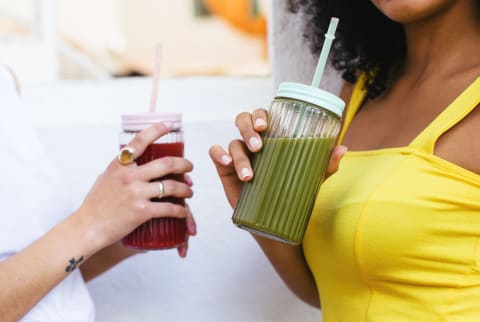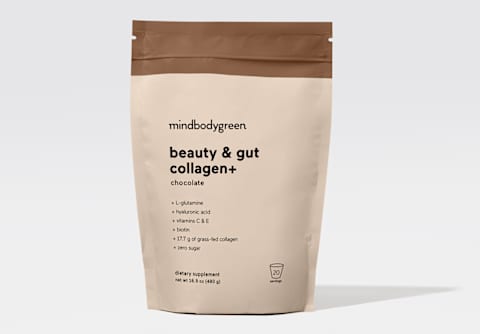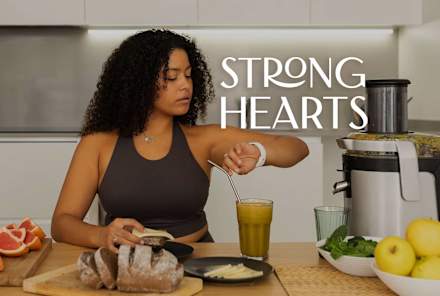Advertisement
Study Finds Berry-Based Smoothies Support Flavanol Levels


I'm not a fan of hating on healthy foods. Sure some fruits and vegetables are more nutrient-dense than others, but having any fruits and vegetables in your diet is better than none.
Still, you may be wondering which ones are the best suited for your particular health goals, which is a valid pursuit. To come, a research study proposes one ingredient you should definitely toss in your blender if you've been in search of the healthiest smoothie.
Berry-based smoothies best support flavanol absorption
Flavan-3-ols1 are a subgroup of flavonoids that have been shown to have countless benefits by acting as antioxidant, anticarcinogen, cardio-preventive, antimicrobial, antiviral, and neuroprotective agents.
So, it only makes sense that you'd want to keep your flavan-3-ol levels quite high if possible, especially to support cardiovascular health1 and increase the longevity of cognitive function2.
According to a study published in Food & Function, banana-based smoothies decrease flavan-3-ol levels in the blood, while berry-based smoothies may help to increase it. In fact, berry-based smoothies increased flavan-3-ol levels in a similar fashion when compared to ingesting flavan-3-ol capsules alone.
The difference between the two fruit bases was significant, as the berry-based smoothies lowered flavan-3-ol levels by 87%, while the berry-based smoothies acted similarly to a capsule supplement.
Researchers came to this conclusion by measuring the flavan-3-ol plasma levels of a small group of healthy men after they'd fasted for 12 hours. Unfortunately, the size of the study was quite small, and no women were included, so these findings will need to be confirmed in future, inclusive studies.
The findings are still worth noting, not because banana-based smoothies are worthless but more so as a reminder that a diversity of plant-based foods, fruits included, are beneficial for your health.
In the world of smoothie making, you may consider adding mixed berries (i.e., strawberries, blueberries, and blackberries) to your recipe if possible.
You don't need to discount bananas entirely, though. In fact, bananas are rich in potassium, which is important for heart health as well.
Other dietary sources of flavan-3-ols include teas, cocoa-based products, and a variety of other fruits including apples, pears, peaches, and grapes—so if berries just aren't your thing, know you have other options to increase your flavan-3-ol levels.
A berry-based smoothie recipe to try
If you're in need of inspiration to up your smoothie game, try the recipe below:
- 2 cups mixed berries
- 1 cup orange juice
- 1 cup milk of choice
- 1 tablespoon coconut butter
- A dash of cinnamon
If you want to make your blend even more decadent, consider adding a scoop of collagen powder, nut butter, or protein powder for added texture. Top your blend with cacao nibs or fresh berries for an even stronger flavan-3-ol boost.
The takeaway
While any whole and natural food consumption is better than none, research suggests berry-based smoothies may be the best option for boosting flavan-3-ol levels to support cardiac and cognitive function, when compared to solely banana-based smoothies. Here, more nutrient-dense smoothie recipes to experiment with.



















